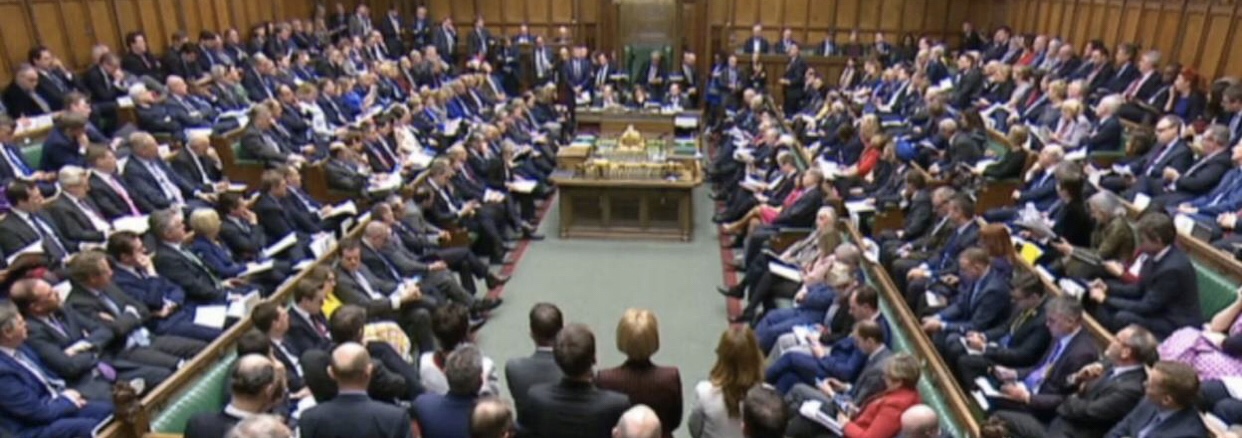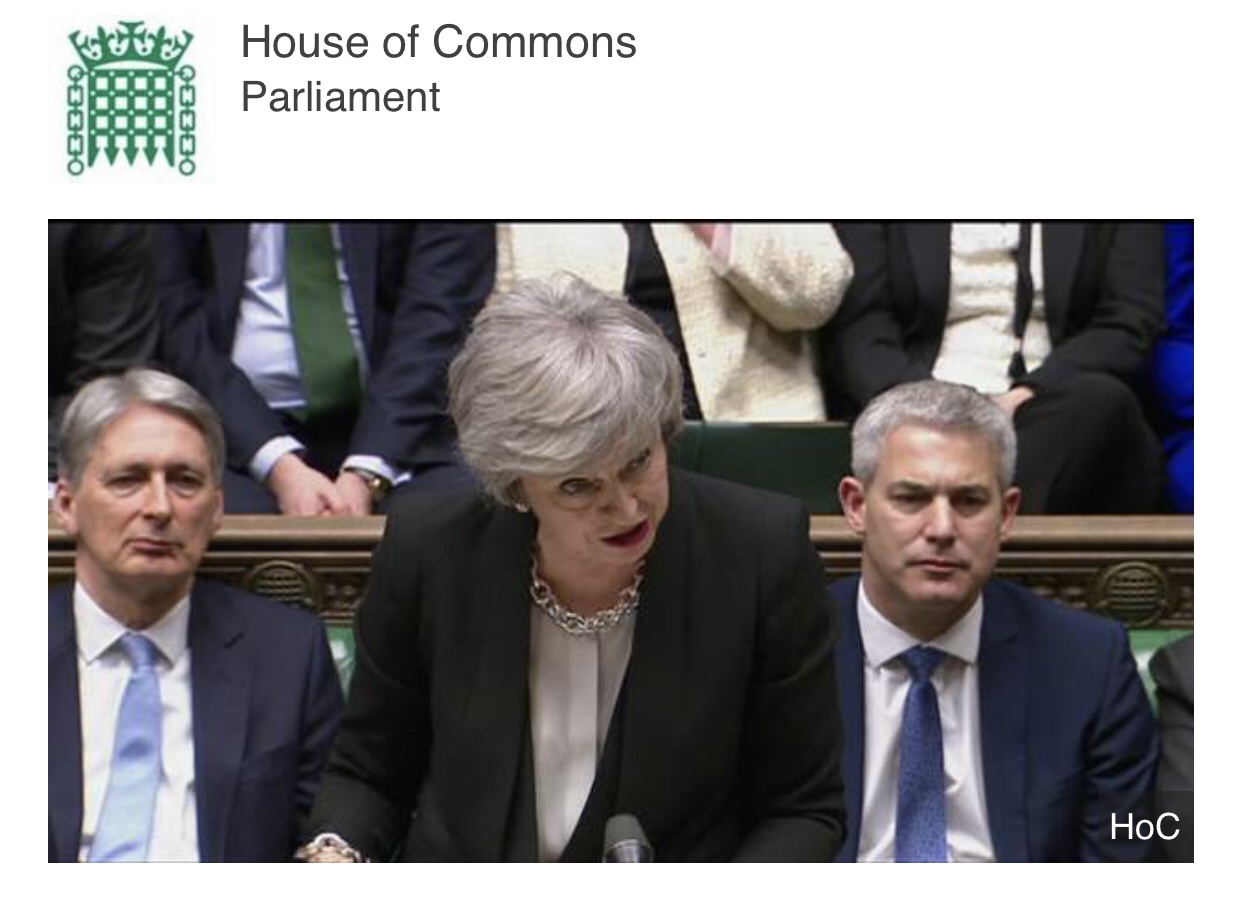We have had another extremely interesting night in the House of Commons.

Before the vote PM Theresa May announced that she will request a renegotiation of the Withdrawal Agreement in Brussels.
So far there have only been negative comments from EU about the possibilities for any changes of the Withdrawal Agreement.

– Seven amendments was approved for Parliament voting tonight.
1. The Brady amendment regarding the need for a re-negotiation of the Withdrawal Agreement introducing an alternative arrangement for backstop – was adopted 317 for, 301 against.
2. The Tory MP Caroline Spelmans alternative suggestion to try to prevent a no-deal Brexit won the support of the MPs with eight votes, 318 for, 310 against.
All other amendments were voted down.
Theresa May will now go back to Brussels with a message on what needs to happen tobget a deal through the UK Parliament.
Theresa May has told MPs she will seek to re-open negotiations with the EU over the Northern Ireland backstop.
The PM said she would go back to Brussels to get a “significant and legally binding change” to the controversial proposal, which aims to stop the return of border checks.
The EU has said it will not change the legal text agreed with the UK PM.
Mrs May said she knew there was a “limited appetite” in the EU, but she believed she could “secure” it.
Senior Brexiteer rebels – who voted down the PM’s deal last month – have indicated they would be willing to back the rest of the UK-EU Brexit deal if she gets legal changes to the backstop.
The backstop is the insurance policy in Mrs May’s plan to prevent checks on goods and people returning to the Northern Ireland border, which some MPs fear could leave the UK tied to the EU’s rules indefinitely.
But some MPs from the PM’s own backbenches, who backed Remain in the referendum, will support rival proposals to try and rule out the UK leaving the EU without a deal.
Source: BBC News
The government will support a backbench amendment to the Brexit deal that calls for the planned Irish backstop to be replaced by “alternative arrangements”.
Tory MPs will be told to vote for Sir Graham Brady’s proposal when the Commons votes on a series of amendments to Theresa May’s plan on Tuesday.
The government will also order its MPs to vote against a move which could delay Brexit by up to nine months.
But Commons Speaker John Bercow will decide which amendments get voted on.
Senior EU representatives have repeatedly ruled out re-opening negotiations with the UK over Brexit, and insisted the backstop – the insurance policy against a return of a hard border between Ireland and Northern Ireland – must be included in any deal.
Meanwhile, the government announced its plans for EU citizens coming to the UK in the case of a no-deal Brexit, saying it would “seek to end free movement as soon as possible”.
The Home Office said that for a “transitional period” after Brexit – set for 29 March – EU citizens will be able to enter the UK to visit, work or study as they do now, but after three months they would need to apply for “European Temporary Leave to Remain”, which would last three years.
Home Secretary Sajid Javid said it was a “practical approach” and would “minimise disruption to ensure the UK stays open for business”.
To read the entire article, click here: Brexit: Government supports Brady amendment on Ireland border
Source: BBC






You must be logged in to post a comment.